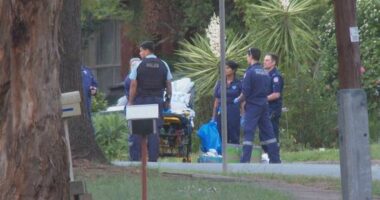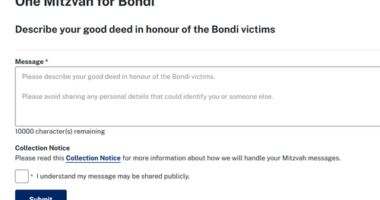Share this @internewscast.com

Key Points
- Floods have devastated parts of the NSW mid-north coast and Hunter regions.
- The flooding has killed five people and made 1,000 buildings uninhabitable.
- Local volunteers are leading recovery efforts, dealing with dead livestock and destroyed homes.
Thousands of people remain isolated in NSW despite floodwaters receding, as an insurance “catastrophe” is declared amid the clean-up effort.
The Insurance Council of Australia (ICA) upgraded its classification of the mid-north coast and Hunter regions floods from “significant event” to “catastrophe” on Tuesday, which it says means claims from affected policyholders will be prioritised.
“The decision to upgrade this event reflects the breadth and severity of damage caused to impacted communities,” ICA CEO Andrew Hall said in a statement.
The ICA said about 5,000 insurance claims have been made so far, but the total cost is not yet known.
NSW Emergency Services Minister Kristy McBain said she was aware of cases where insurers had either not offered coverage or it was prohibitively expensive, which she said was a “significant concern”.
She said assistant treasurer Dan Mulino would be having “direct discussion” with insurers and the ICA over the next couple of days.
“The message from us is clear,” McBain told ABC Radio National on Wednesday.
“If there is an insurance policy, get it paid out and sorted out as soon as possible for people to start that clean-up process.”
Flood-hit communities to get more funding
McBain also said NSW communities impacted by the natural disaster, which has claimed five lives, will be eligible for more funding because the disaster declaration has been elevated.
“At this stage, our categories A and B have been enacted, and we’re hoping to enact category C, hopefully shortly,” she said.
Category C assistance is only made available when the impact of a disaster is severe and requires agreement from the prime minister.
The federal funds for severely affected communities and sectors includes clean-up and recovery grants for small businesses and primary producers and the establishment of a community recovery fund.
The federal government has pledged a disaster recovery payment up to $1,000 for eligible adults and $400 for eligible children, on top of personal hardship payments up to $900 per family.
A disaster recovery allowance will provide up to 13 weeks’ income support and primary producers will get access to concessional loans and freight subsidies.
Thousands still isolated as clean-up continues
The NSW SES said on Wednesday morning there are about 3,500 people still isolated by floodwaters, and more than 8,400 damage assessments have been carried out with more than 1,000 buildings deemed uninhabitable. More than 10,000 cubic metres of waste has been collected so far.
The clean-up is being aided by some 70 army personnel, but volunteers, including concerned locals, are carrying the load of the day-to-day recovery as the areas count the cost of the floods.
One of those was Brett Bennell from Bennell Earthmoving, who offered free excavator and truck services in areas surrounding Coopernook, just north of Taree on the NSW mid-north coast.
“I’ve moved two truckloads of dead animals, I’ve cleaned out three houses, stuff like that, it’s just shocking,” he told the Australian Associated Press..
“One bloke there didn’t want to show his young fella the dead cows piling up, it’s affecting people bad.”
Bennell said houses had been wiped out, with residents desperately clinging to hope valuable items remained usable.
“They’re trying to keep things but it’s a waste of time and they’ve got no money which is why they want to keep things,” he said.
Extra police patrolling the flood zone
As the clean-up effort gets into full swing, another person was charged with looting offences on Tuesday.
They are alleged to have stolen tools, paintings, family photos, DVDs, a fish tank, a lamp, tyres, and other personal items from a house in Wingham.
Detective inspector Natalie Antaw warned the public that extra police were patrolling the affected areas.
“I’d also like to remind people that taking any goods that are not yours, no matter where they are found, is an offence — even if the items have been moved from their original place by floodwaters.”
— With reporting by the Australian Associated Press.














